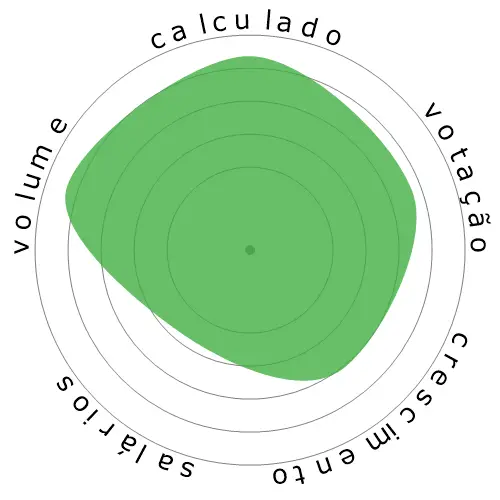Professores de Pré-escola, Ensino Fundamental, Ensino Médio, Ensino Secundário e Educação Especial.




As pessoas também visualizaram
Risco de automação calculado
Risco Mínimo (0-20%): Ocupações nesta categoria têm uma baixa probabilidade de serem automatizadas, pois geralmente exigem resolução complexa de problemas, criatividade, fortes habilidades interpessoais e um alto grau de destreza manual. Esses trabalhos geralmente envolvem movimentos de mão intrincados e coordenação precisa, tornando difícil para as máquinas replicarem as tarefas necessárias.
Mais informações sobre o que é essa pontuação e como ela é calculada estão disponíveis aqui.
Esta página é uma página de categoria que compreende várias ocupações. Para determinar uma pontuação para esta categoria, calculamos a média de todas as ocupações dentro dela.
Por favor, consulte as páginas individuais de ocupação para obter mais informações sobre cada profissão incluída nesta categoria, você pode vê-las listadas. aqui.
Enquete do usuário
Nossos visitantes votaram que há uma baixa chance de esta ocupação ser automatizada. Esta avaliação é ainda mais apoiada pelo nível de risco de automação calculado, que estima 11% de chance de automação.
O que você acha que é o risco da automação?
Qual é a probabilidade de que Professores de Pré-escola, Ensino Fundamental, Ensino Médio, Ensino Secundário e Educação Especial. seja substituído por robôs ou inteligência artificial nos próximos 20 anos?
Crescimento
Espera-se que o número de vagas de emprego para 'Preschool, Elementary, Middle, Secondary, and Special Education Teachers' diminua 0,1% até 2033
Emprego total e estimativa de vagas de emprego
As projeções atualizadas são devidas 09-2025.
Salários
Em 2023, o salário anual mediano para 'Preschool, Elementary, Middle, Secondary, and Special Education Teachers' foi de $ 63.280, ou $ 30 por hora
'Preschool, Elementary, Middle, Secondary, and Special Education Teachers' receberam 31,7% a mais do que o salário médio nacional, que era de $ 48.060
Salários ao longo do tempo
Volume
A partir de 2023 havia 4.261.430 pessoas empregadas como 'Preschool, Elementary, Middle, Secondary, and Special Education Teachers' dentro dos Estados Unidos.
Isso representa cerca de 2,8% da força de trabalho empregada em todo o país
Dito de outra maneira, cerca de 1 em 35 pessoas são empregadas como 'Preschool, Elementary, Middle, Secondary, and Special Education Teachers'.
Descrição do trabalho


Comentários
Leave a comment
plus, the robots might even scare them
Tools like intelligent tutoring systems, virtual reality for immersive learning experiences, and automated administrative tasks can free up educators to focus on more critical aspects of teaching, such as emotional intelligence and critical thinking.
While AI's integration into education could enhance teaching and learning processes, a complete takeover is less about replacement and more about augmentation and partnership between human educators and AI technologies. The future likely holds a blend where AI supports education, enriching the learning experience without fully displacing the human touch that is crucial for student development.
Deixe uma resposta sobre esta ocupação